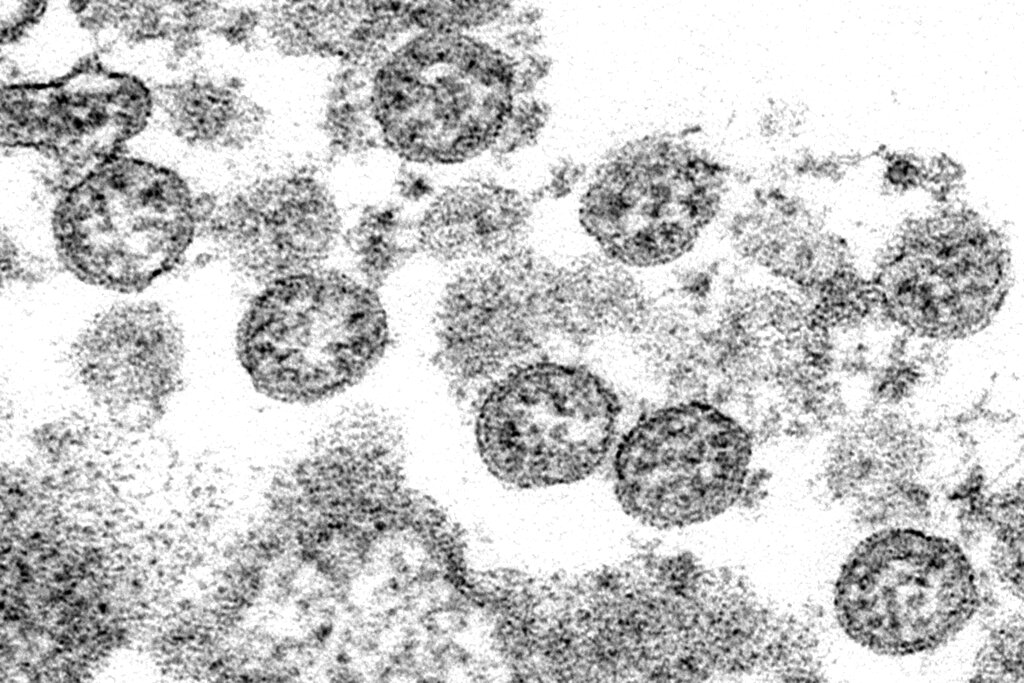
This 2020 electron microscope made available by the U.S. Centers for Disease Control and Prevention image shows the spherical coronavirus particles from the first U.S. case of COVID-19. (C.S. Goldsmith, A. Tamin/CDC via AP)
The World Health Organization said Friday it was studying a possible link between COVID-19 and a rare inflammatory illness that has sickened and killed children in Europe and the United States.
In recent weeks, several countries have reported cases of children affected by an inflammatory disease with symptoms similar to those of a rare condition, Kawasaki’s disease.
“Initial reports hypothesize that this syndrome may be related to COVID-19,” WHO chief Tedros Adhanom Ghebreyesus told a virtual briefing.
“It is critical to urgently and carefully characterize this clinical syndrome, to understand causality and to describe treatment interventions,” he said.
He said the WHO had developed a preliminary case definition for the disease, which it has dubbed “Multisystem Inflammatory Syndrome in Children”, and was calling on clinicians worldwide to “be on the alert and better understand this syndrome.”
His comments came after a doctor in France said Friday that a nine-year-old boy there who had tested positive for COVID-19 had died from the syndrome, marking the first such death in the country.
Similar child fatalities are being investigated in New York and London.
A London children’s hospital said on Wednesday that a 14-year-old boy with no underlying health conditions had died from the disease and had tested positive for the new coronavirus.
In New York, Governor Andrew Cuomo said on Tuesday that three children in the state had died and more than 100 cases were being investigated.
There have been 125 reported cases in France between March 1 and May 12, according to the country’s public health agency. The patients’ ages ranged from one to 14.
‘Very rare’
WHO expert Maria Van Kerkhove told Friday’s briefing that the link to COVID-19 had yet to be clearly established, since some of the children with the syndrome had not tested positive for the virus.
“We need to understand if this syndrome is related to COVID-19 or not,” she said.
“We need all countries to be on alert for this.”
WHO emergencies director Michael Ryan meanwhile said that even if the syndrome is related to COVID-19, it may not be caused by the novel coronavirus itself.
“What we don’t know yet is whether those rare things that happen are associated directly to the virus… or are we seeing also the result of the immune response to the virus,” he said.
He also stressed that the syndrome impacting children appeared to be “very rare,” and had only become apparent because of swelling number of COVID-19 cases.
“It doesn’t mean that the disease is changing in kids,” he said.
“What it means is that when you get a very large number of children with the disease, you will see a very rare occurrence happen.”